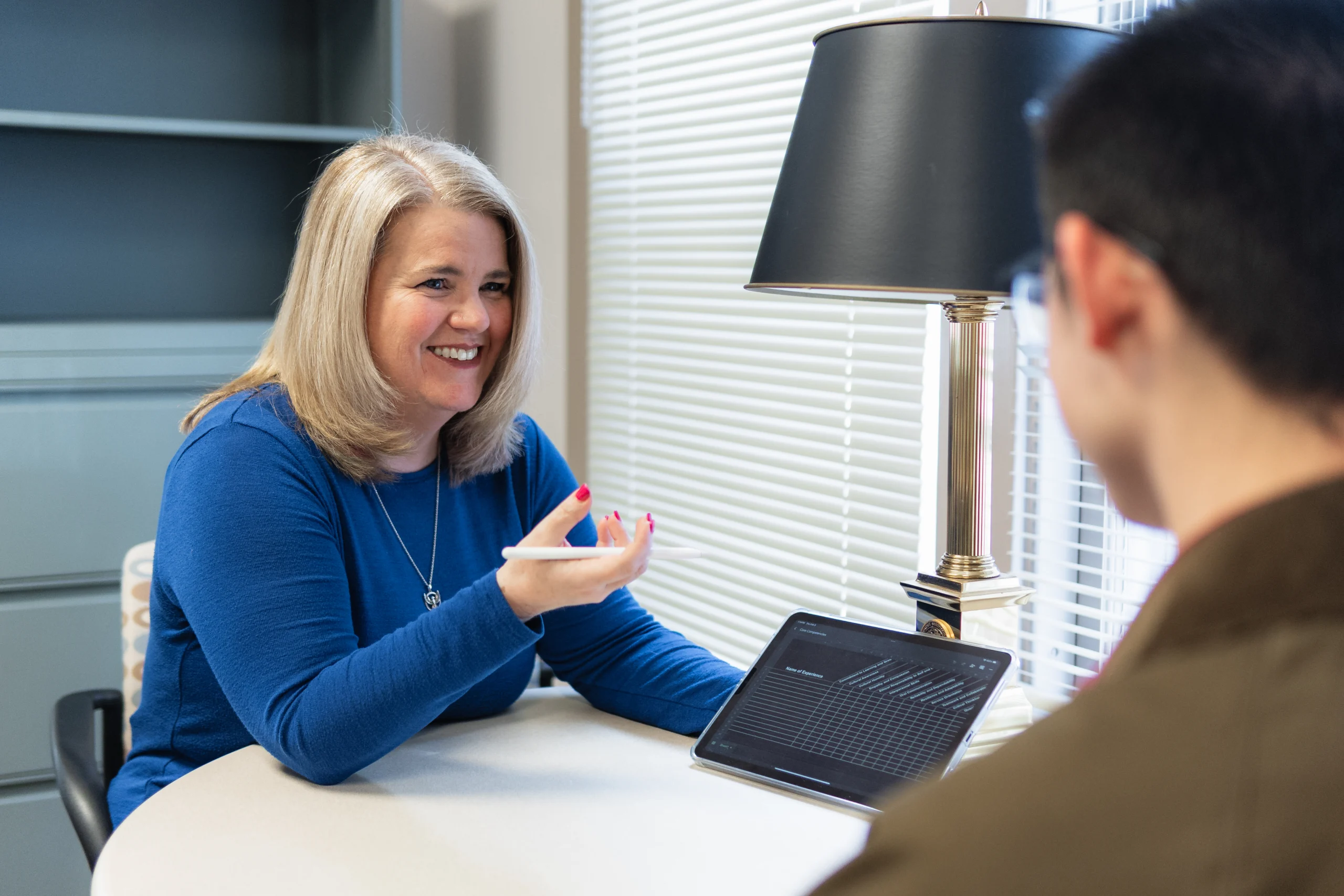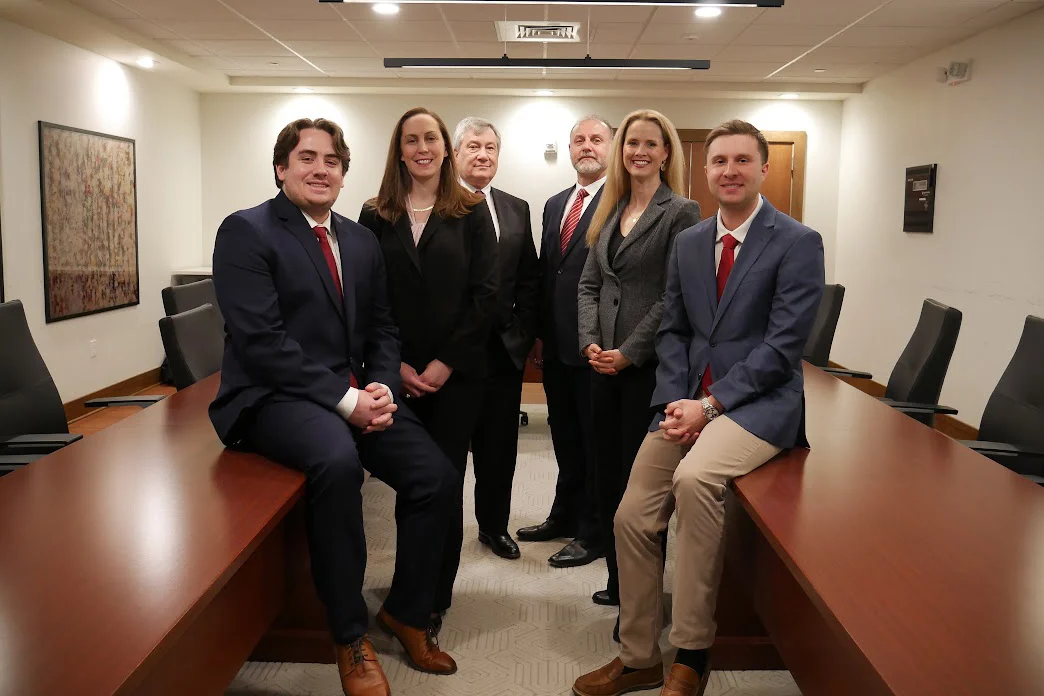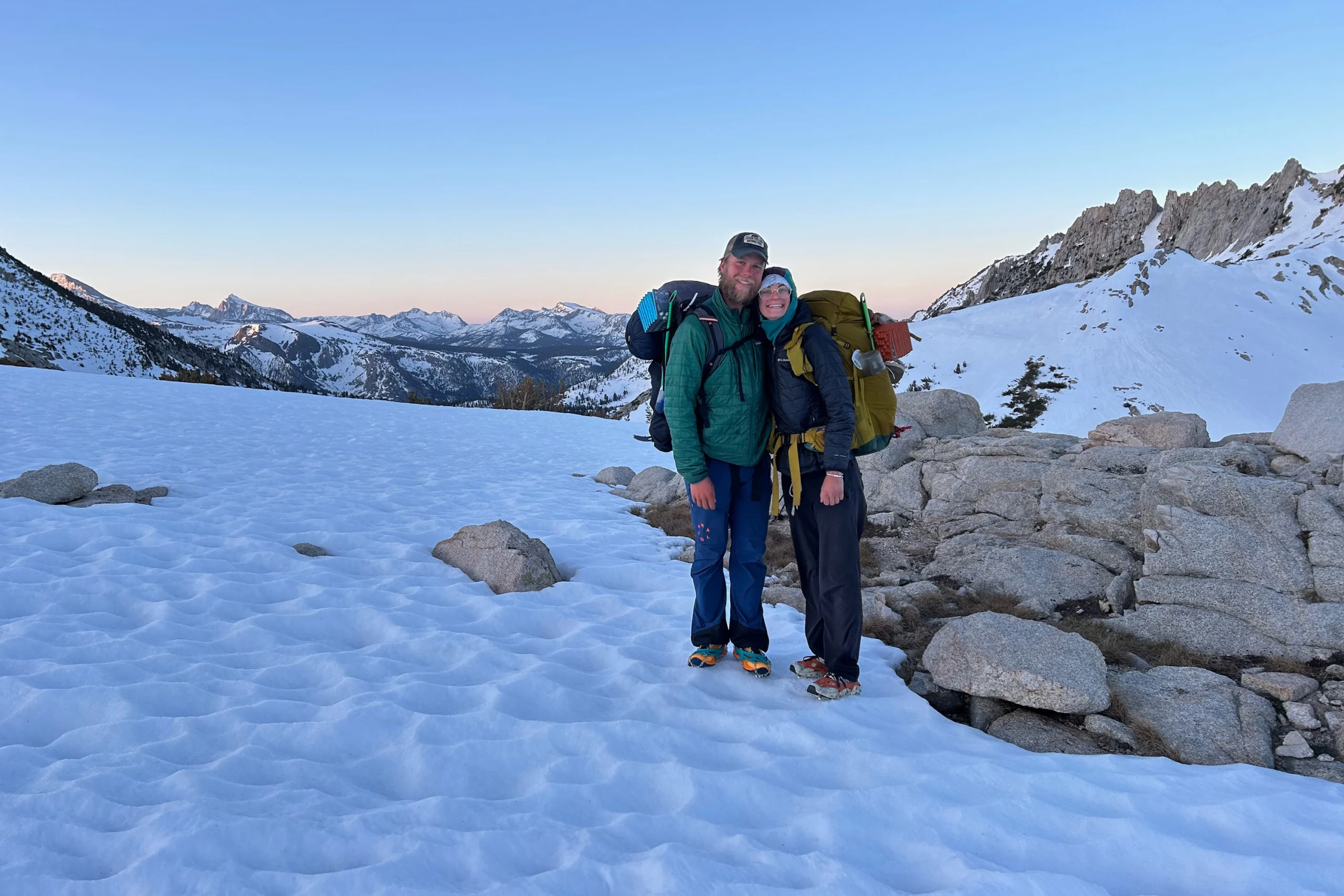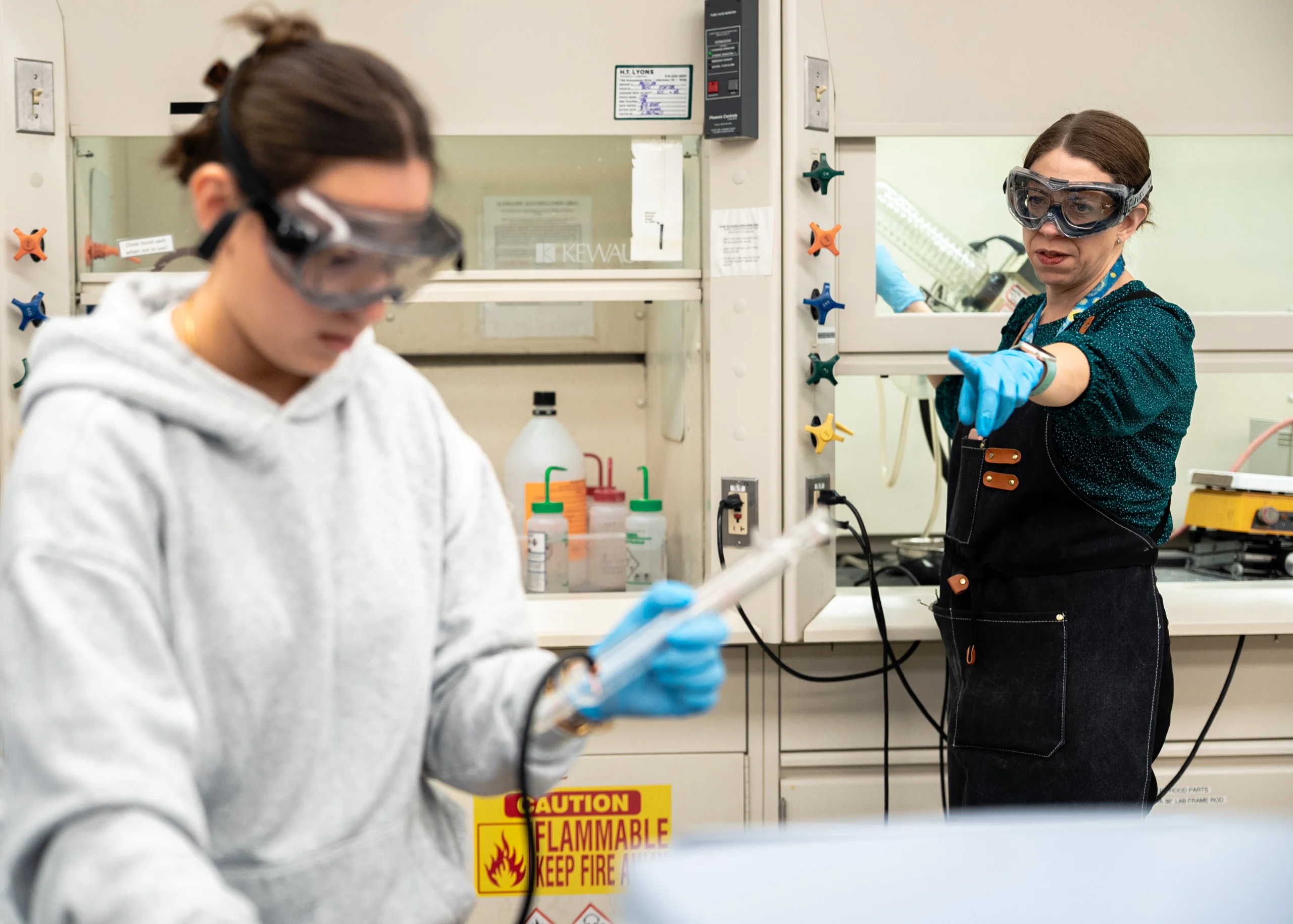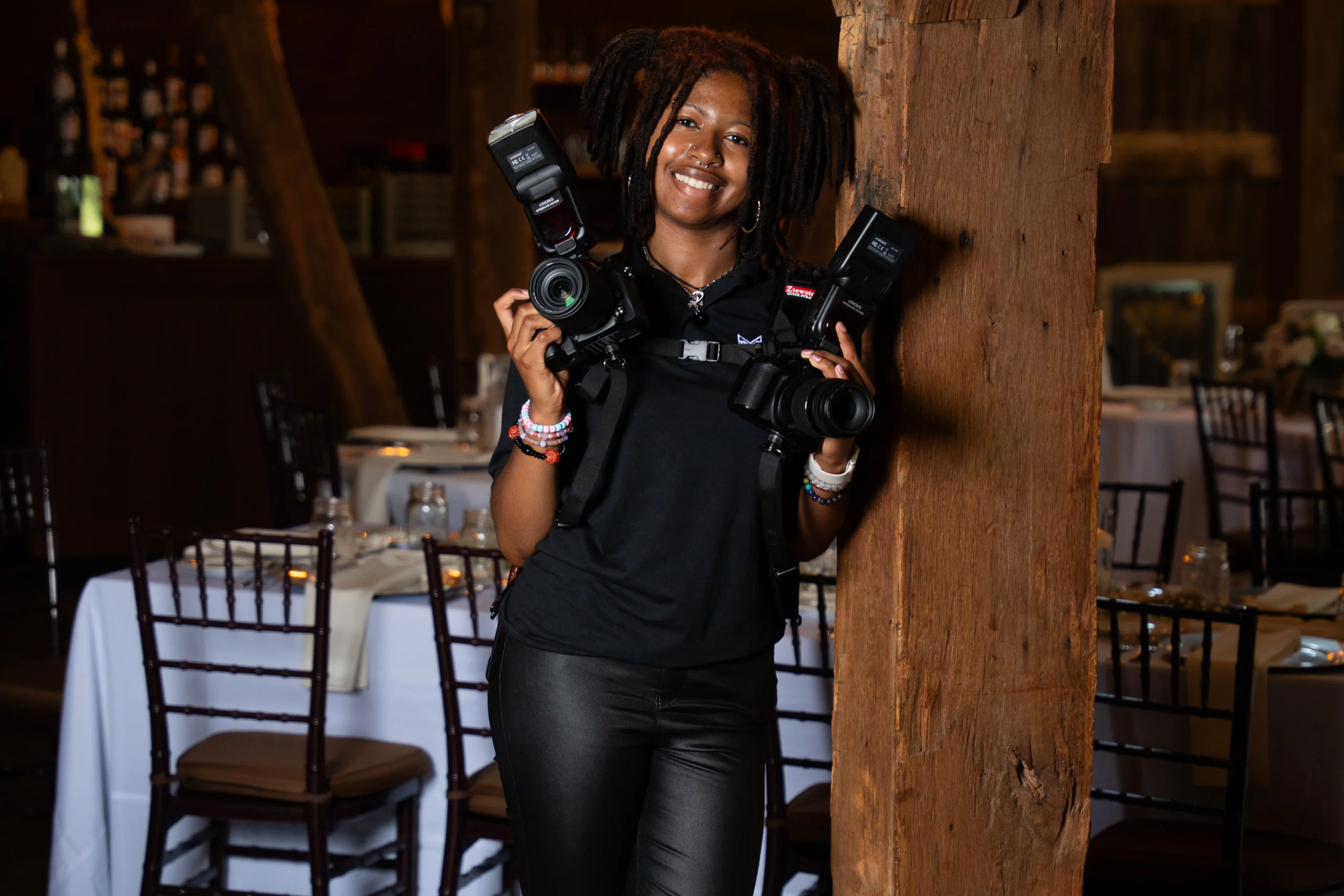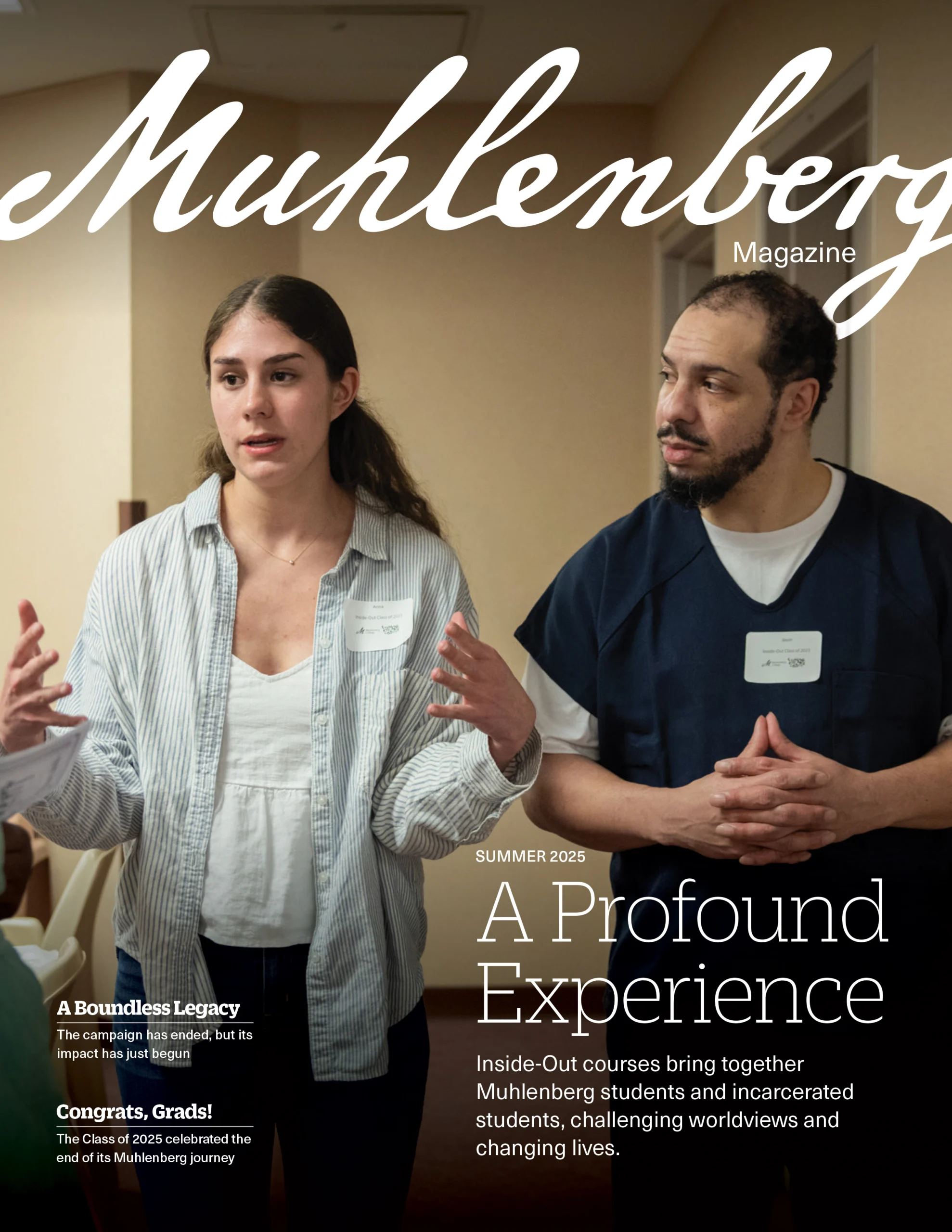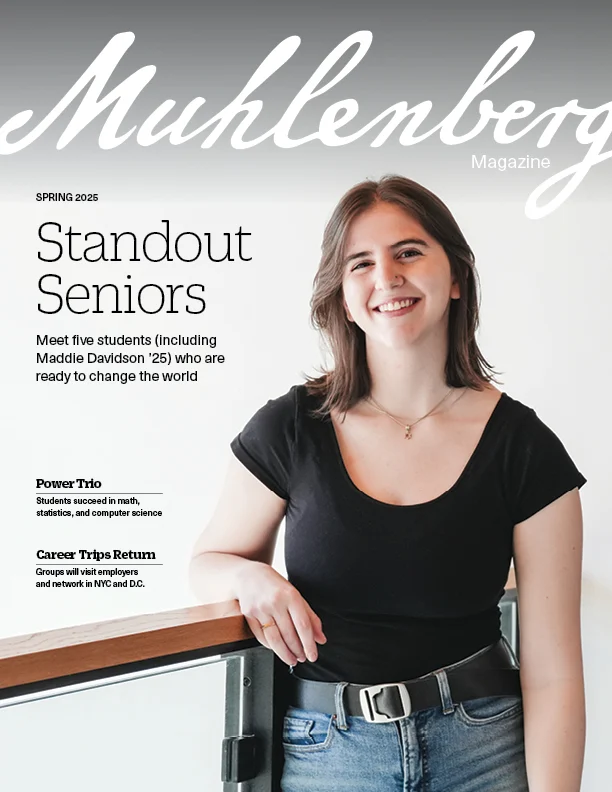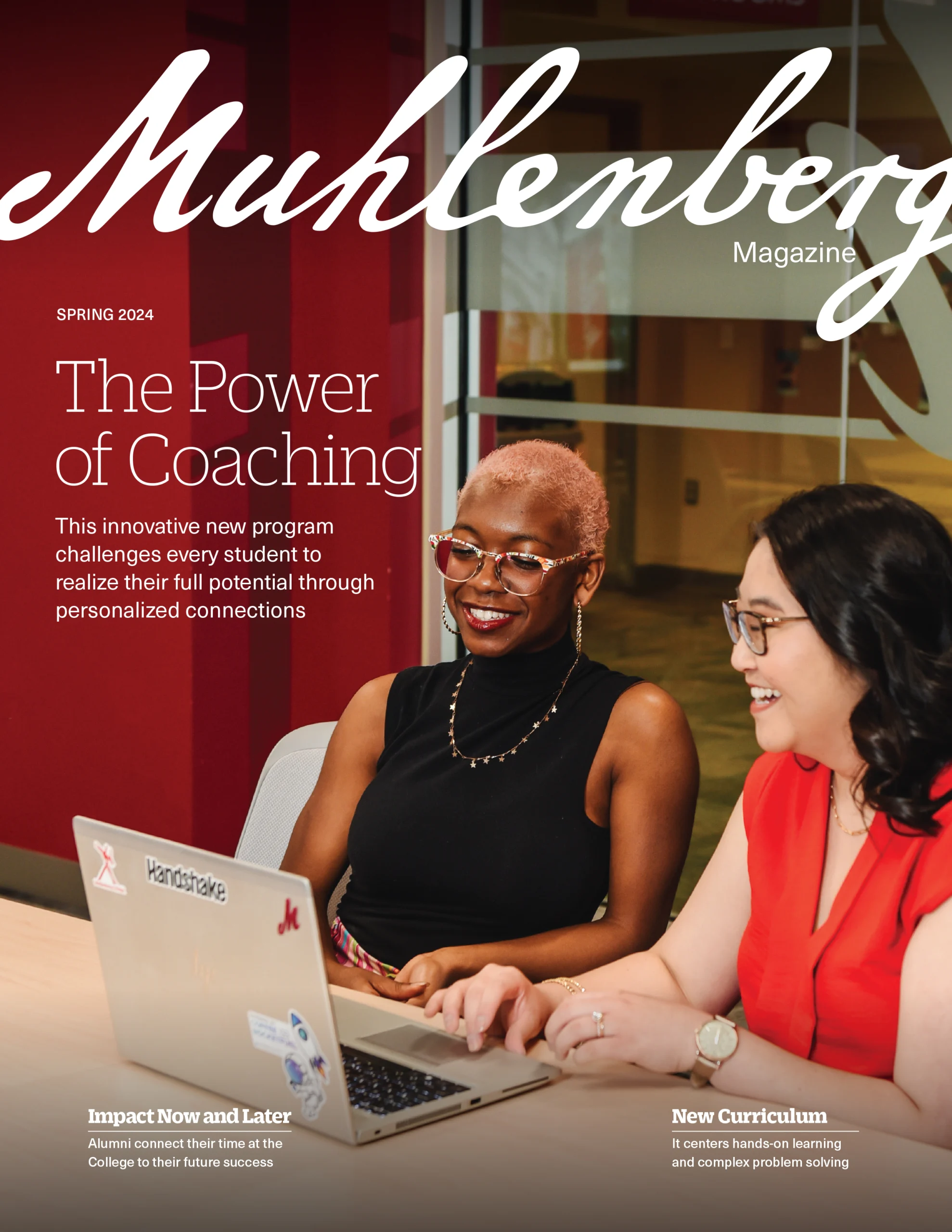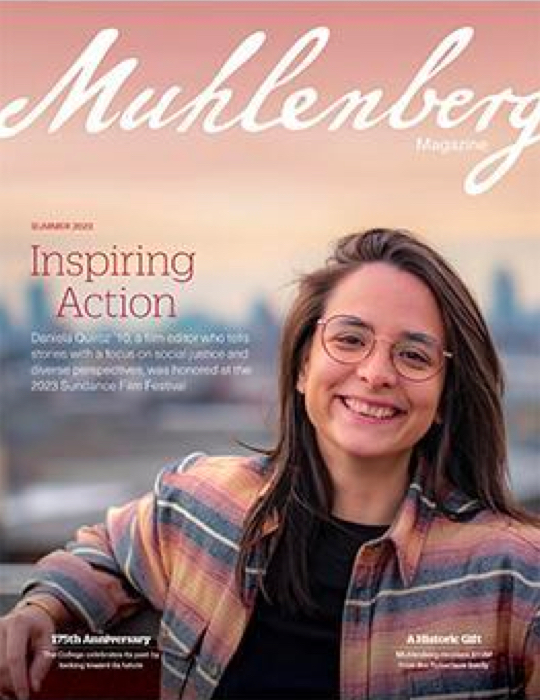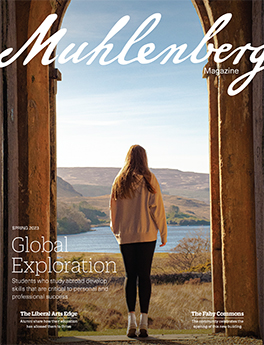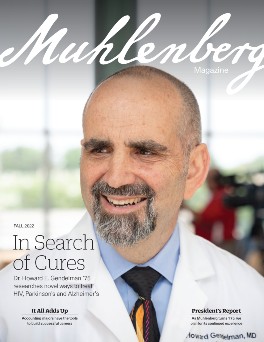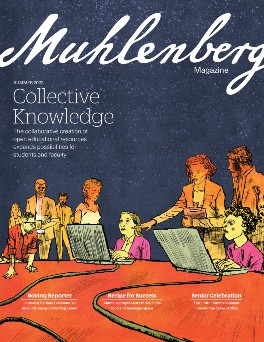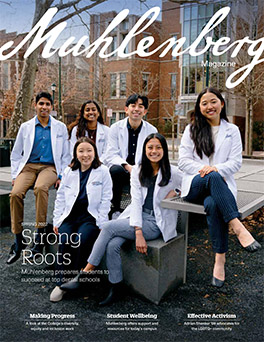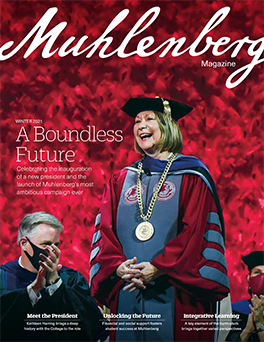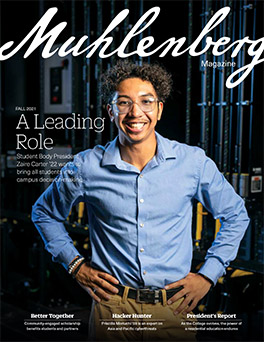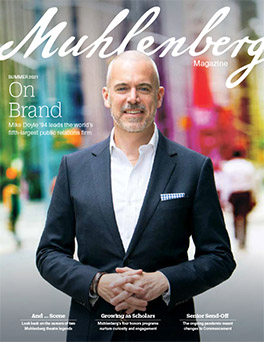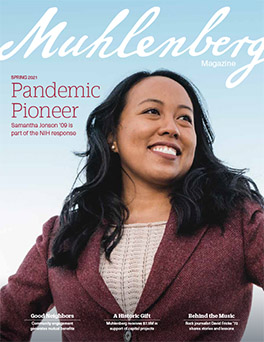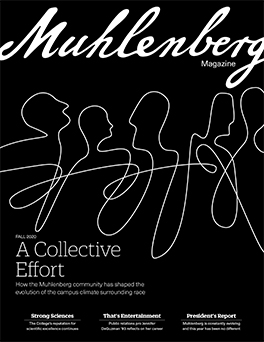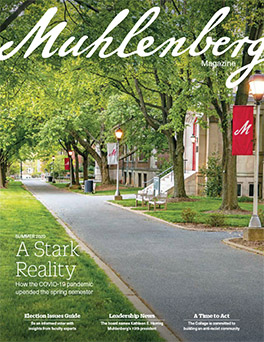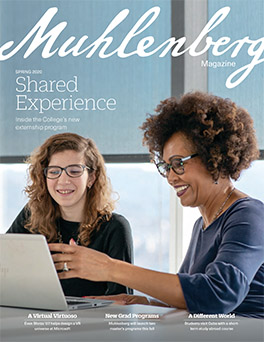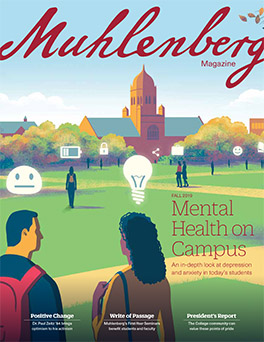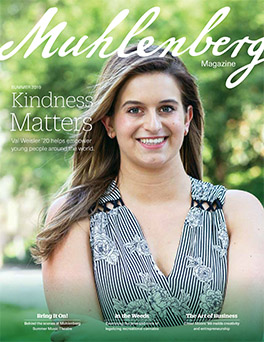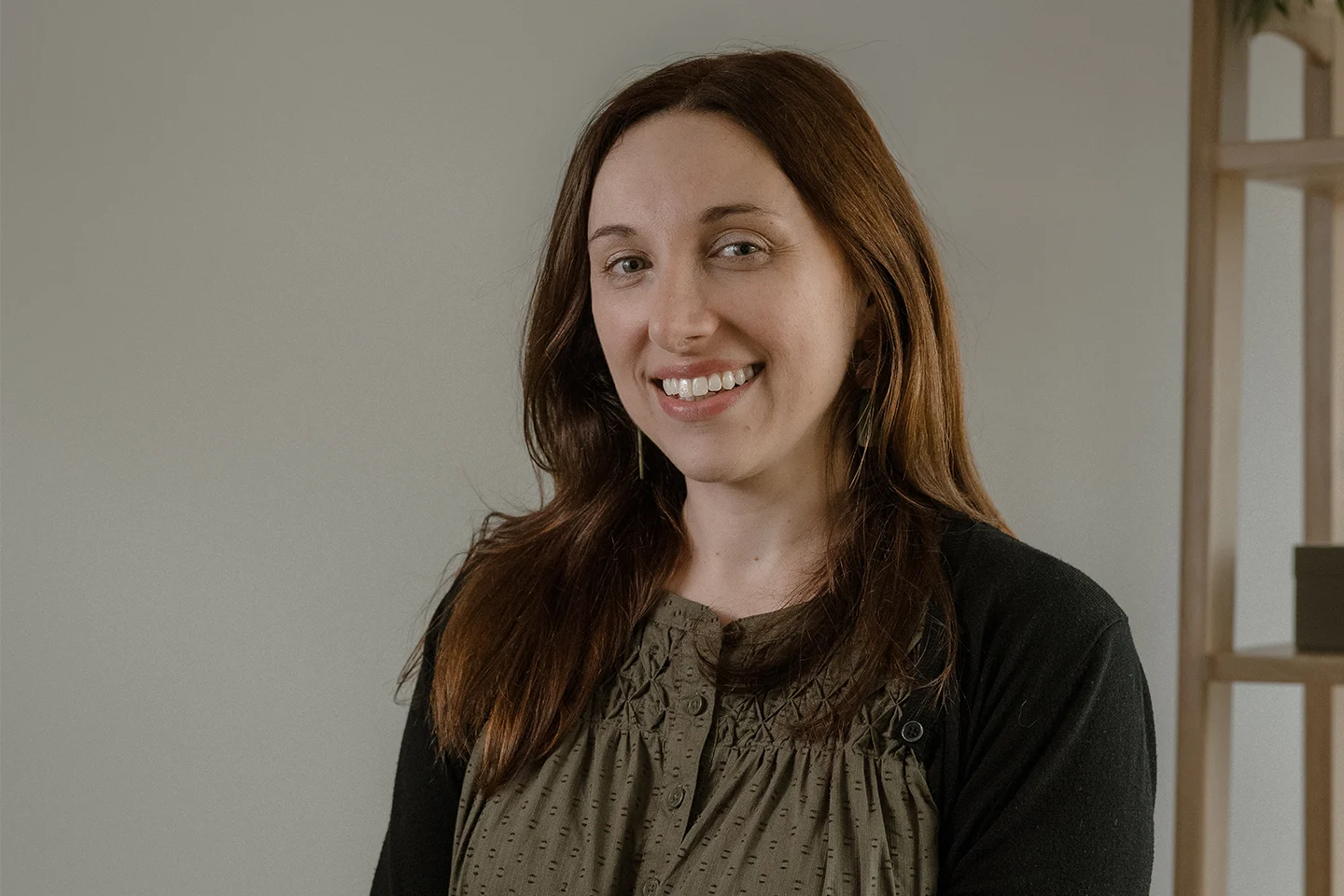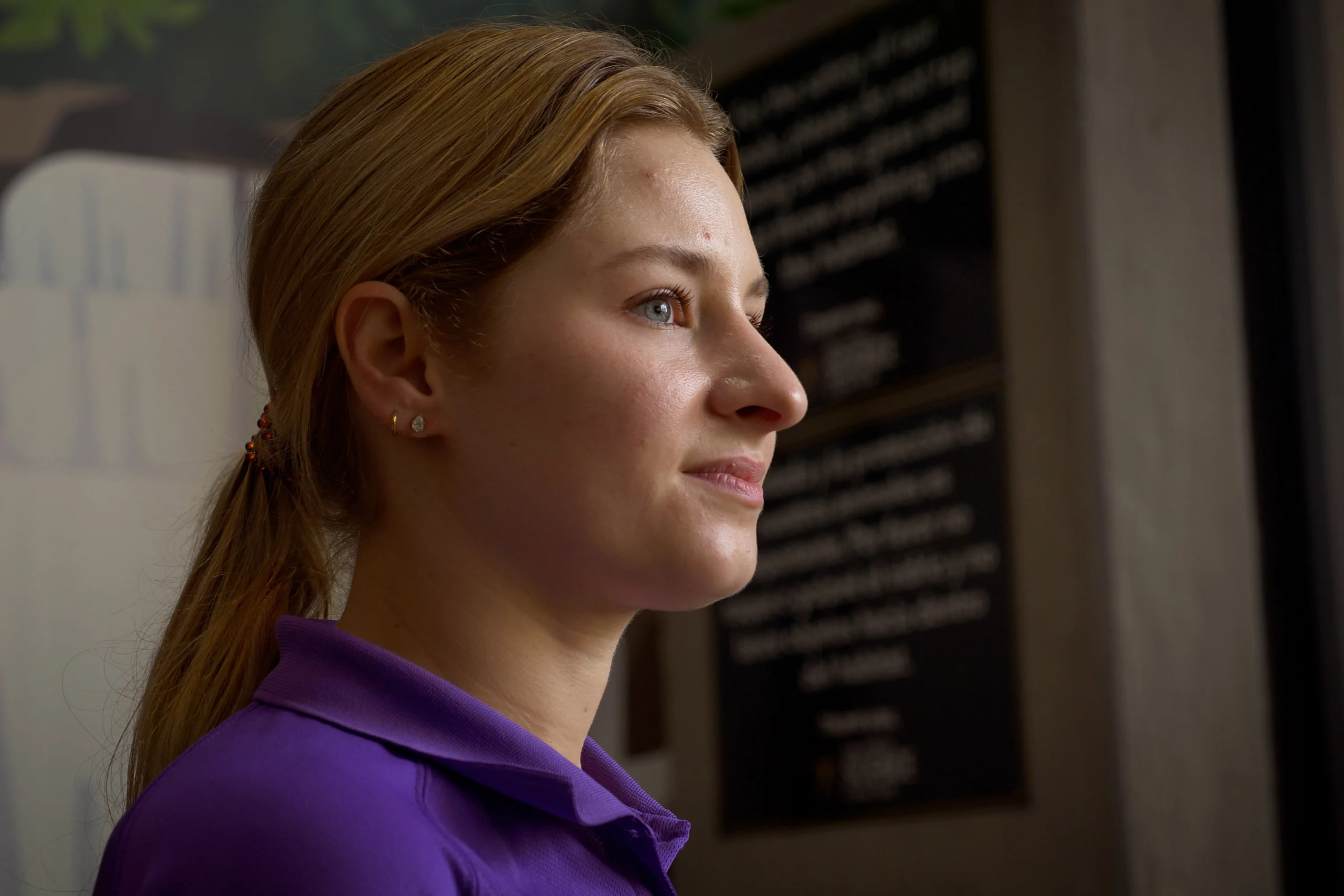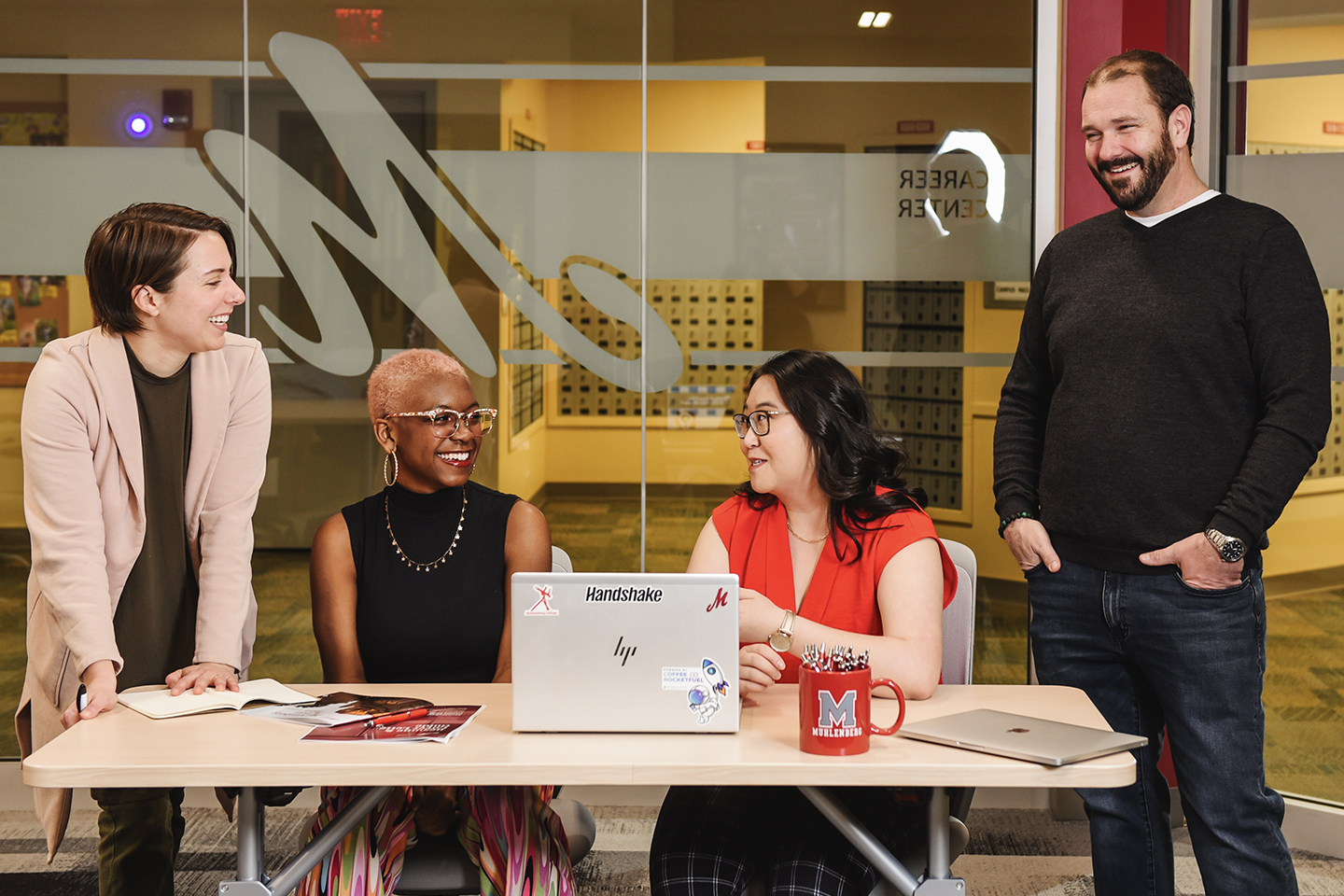
The Power of Coaching
Muhlenberg’s innovative coaching program challenges every student to realize their full potential through personalized connections. A team of three faculty and staff coaches guides each incoming student as they learn to make the most of the opportunities available on campus.
Editor’s note: Since this story was published, an assessment of this program found, among other positive results, that 95% of first-year student respondents could identify three faculty or staff who support their journey at Muhlenberg. Learn more here.
Last Fall, Marcelina Palmer ’27 met Assistant Director of Career Coaching & Education Sara Weidner when she visited Palmer’s Personal & Professional Development (PPD) class. The required course, which introduces new students to the College and its resources, now supports Muhlenberg’s innovative coaching program.
This program matches each first-year student with a college life coach and a career coach in addition to a faculty advisor. Weidner would be serving as that PPD section’s career coach. Palmer made an appointment to meet with her in the Career Center, where she felt welcomed, comfortable and eager to return.
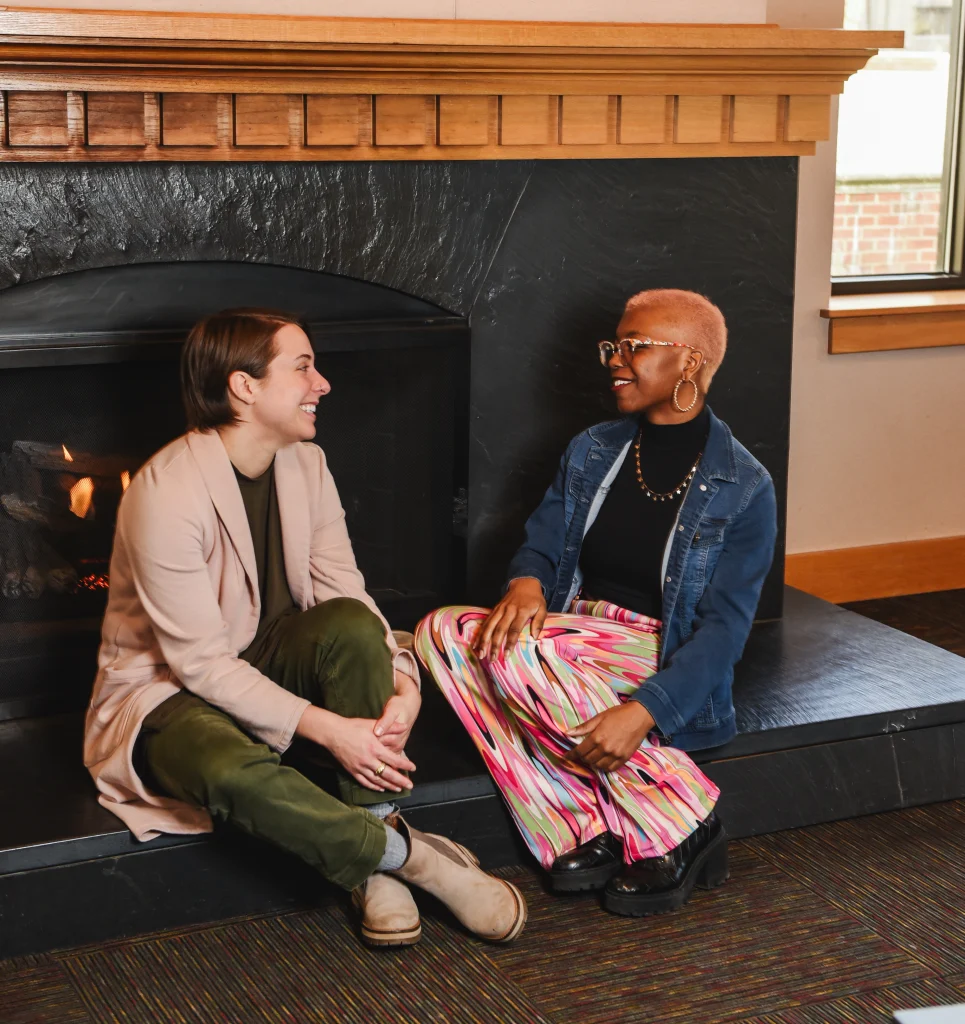
“As freshmen, we’re still trying to figure out who we are and what majors we want to go into. Some people don’t think about utilizing the Career Center until their path is set in stone,” says Palmer, who’s met with Weidner a few times since to go over her resume and cover letter for a resident advisor position. “I feel like it’s more beneficial to go in right away and start making that connection with the Career Center so they already know who I am and I have that established relationship with them before I need help with something.”
The Class of 2027 is the first to benefit from the coaching program, which is designed to meet the needs of students who’ve lived through the extreme academic and social disruption of the pandemic. The idea for this distinctive program came out of focus groups with students, faculty and staff the College held in 2022, says Vice President for College Life and Dean of Students Allison Williams.
“The coaching program is about so much more than just connecting with or offering a bit of advice to a student,” she adds. “This program allows every student to start their college career with several connections, a network focused on helping students uncover their goals and passions and then charting the course that will help them achieve them. Research consistently supports the positive impact of coaching across diverse domains, showing that effective coaching enhances performance and fosters personal development in a multitude of settings.”
“This program allows every student to start their college career with several connections, a network focused on helping students uncover their goals and passions and then charting the course that will help them achieve them.”
—Allison Williams, Vice President for College Life and Dean of Students
Executive Director of Career Services Sean Schofield, who is spearheading the coaching program along with Associate Dean of Students Courtney Stephens and Director of Advising and Senior Lecturer of Religion Studies Sharon Albert, says it capitalizes on the College’s existing strengths.
“This is an example of us looking inward to what makes us strong and then leaning into that,” Schofield says. “When I talk to students, the number one thing I hear is, ‘I love it here. Everybody knows me. People care about me. People are willing to learn about me.’ And I think this program reinforces, from three really important areas of the college experience, ‘You’re right. That is why you chose this place, and we’re going to even make it better.’”
Thriving on Campus
Sixty-four staff members — from entry-level employees to President Kathleen Harring — volunteered to serve in the new college life coach role: “This program really gets to the core of who we are as a college,” Harring says. “It challenges all of our students — every one of them — to push themselves to succeed beyond anything they thought possible. And it provides the support they need to do that without fear of failure.”
First-year students had to meet with their college life coaches at least twice (once in September, again in November) as part of the required PPD course. The coaches asked adjustment-related questions in the September meeting (ex: What kind of connections have you made? On a scale of one to five, how would you rate your first weeks of college? What’s one thing that would’ve made the start of your year better?) and deeper questions in November (ex: Do you feel part of the Muhlenberg community? Last time we met, we discussed different ways to get involved: What have you tried so far? What is one thing you are doing to positively impact your overall health and well-being?).
Josephine Glass ’27 says her college life coach, Assistant Director of Specialty Housing and Multicultural Life Alyssa Rodriguez, served as an extremely helpful guide as she transitioned to life on campus: “She calmed a lot of my anxiety about getting involved on campus. I wasn’t sure how much I should get involved as a first-year. She gave me some great advice to cast a wide net and draw in where I need to,” says Glass, who, after exploring several activities, focused primarily on her role in a campus performance, her job in the President’s Office and her duties as a Student Government Association representative. “It ended up working super well for me, and I had an excellent first semester here at Muhlenberg.”
Other students interviewed for this article say their college life coaches have helped them in a variety of ways since their arrival on campus. Shealy Andujar ’27 says her coach introduced her to wellness skills (such as deep breathing and journaling exercises) that helped her balance academics and a social life. Gideon Israel ’27 says her coach talked her through the steps required to start a new club on campus. Rowan Frye ’27 says his coach, Stephens, helped him through his finals-week feelings of stress and overwhelm.
“She got me coffee — she really is so, so nice — and we had a conversation, during which I felt like everything was going to be okay, despite the hectic nature of the semester I was finishing up,” Frye says. “My relief in that moment was entirely due to how caring and attentive Courtney Stephens is.”
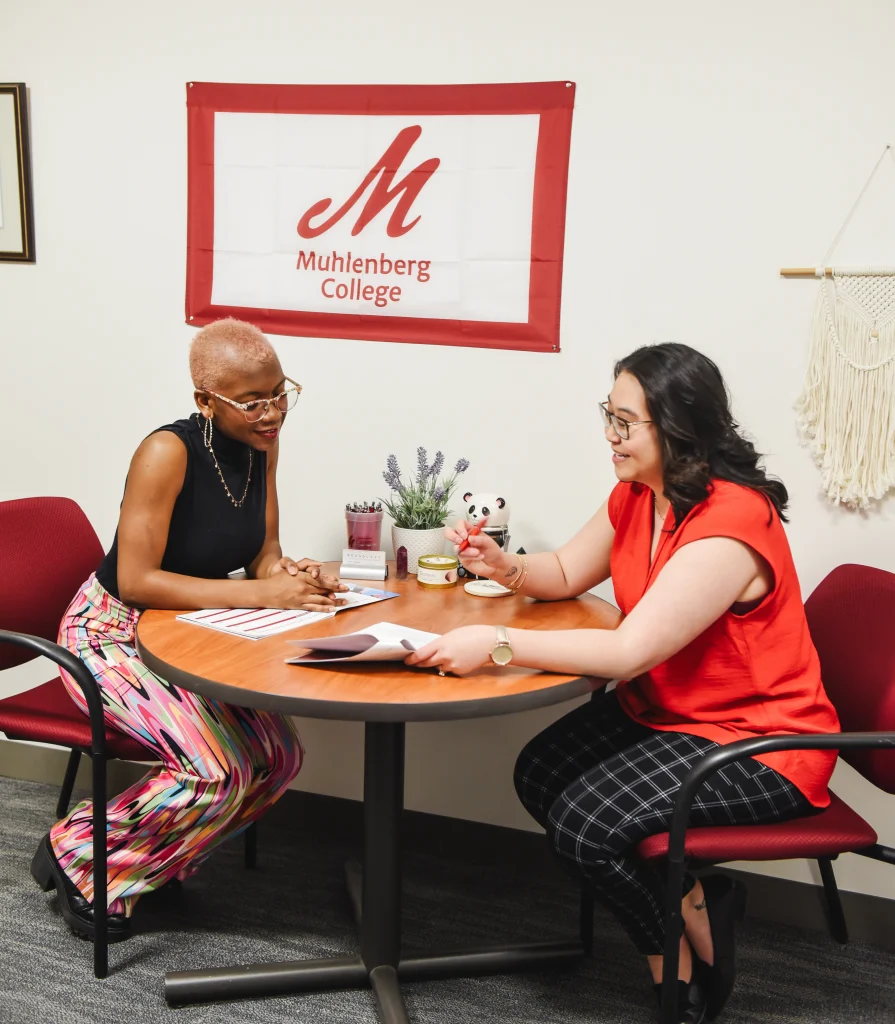
MAPing a Future
Each Career Center staff member visited a handful of PPD sections and became the career coach for those students. Career coaches were responsible for introducing the Muhlenberg Action Plan (or MAP), a framework that guides students through four phases of career development (explore careers, gain experience, demonstrate expertise and achieve excellence) during their Muhlenberg journey. Career coaches asked questions like: What problems are you noticing that you’d like to solve in the world? What can you accomplish in the next two weeks? Who can you connect with or what meetings can you attend on campus?
In their first appointment, Palmer and Weidner discussed the fields of study Palmer is most interested in (dance and neuroscience) and the existence of exploratory career opportunities like externships (job shadowing experiences that can last multiple days) that occur over breaks.
“We’re all part of a real web and network that sits under [students] so that we can do our part and the we can comfortably pass them elsewhere knowing that they’re going to get what they need.”
—Sharon Albert, Director of Advising and Senior Lecturer of Religious Studies
While the first-year students were not required to set up meetings with their career coaches, more than 80% of them did. In fact, some, like Palmer, came back for a second appointment before the end of the first semester or over winter break.
“[Students are] getting a chance to think about career development at an early stage,” Schofield says. “The earlier that we get them in and start exploring things like values and interests and what that means for your career, we have much more time to course correct than if a student’s first experience with career development is at the end of an internship that they hated and now they’re going to be a senior.”
Many first-year students’ faculty advisor is their first-year seminar instructor; others were paired with faculty members they had for another first-semester class. This isn’t new, Albert says — this role has always provided academic guidance until a student declares a major and is assigned an advisor in their field of study.
What is new is the team-oriented approach: “Not only does each student have multiple supports, but none of us are working alone,” she says. “We’re all part of a real web and network that sits under them so that we can do our part and then we can comfortably pass them elsewhere knowing that they’re going to get what they need.”
Continuing Support
Support from the coaching program continues throughout a student’s time at Muhlenberg. In addition to meeting with faculty advisors to select courses each semester, students can utilize the Career Center as often as needed and can expect to hear from their college life coaches at least once per semester. By mid-January, Palmer had already gotten a text from her college life coach, Community Engagement Librarian and Head of Library DEI Initiatives Jess Denke.
“I love a good check-in, which is what I really appreciated about the coaching,” Palmer says.
“[At some schools], students might think advisors just care about your grades. Here at Muhlenberg, that’s not the case. A lot of our professors want to know how we’re doing and to get to know us as a person. I appreciate that and I want to keep those connections.”
Student (and parent) feedback has been overwhelmingly positive, and the coaching program will undergo formal assessment this semester to determine if there are opportunities for improvement. Anecdotally, Stephens says, students are appreciating the support the program provides and the sense of belonging it fosters.
“Muhlenberg has a way of making itself feel like somewhere [students] can be themselves, somewhere they learn how to make change and how to blossom. That always has been a part of the magic,” she says. “This program makes Muhlenberg home that much quicker and makes resources that much more attainable. I think this program reminds students that they matter and that they belong.”
“Muhlenberg has a way of making itself feel like somewhere [students] can be themselves, somewhere they learn how to make change and how to blossom. That always has been a part of the magic.”
—Courtney Stephens, Associate Dean of Students
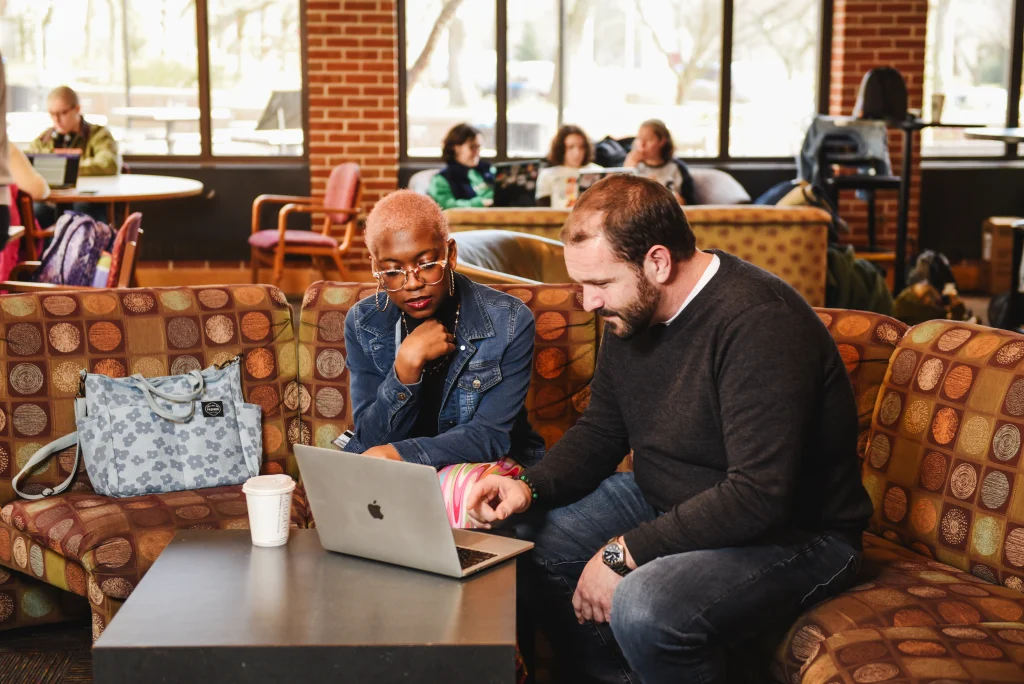
Future Focused
Muhlenberg’s coaching program builds upon other notable opportunities for faculty and staff guidance toward powerful outcomes, including:
Undergraduate Research
Muhlenberg is a leader when it comes to providing fully-funded research opportunities with faculty mentorship for undergraduates across the curriculum. Students conduct research in a variety of disciplines, including the arts and humanities as well as the natural and social sciences. Intensive research opportunities that can be student- or faculty-driven are available for students in any field over the summer months. Many students carry out research with a faculty mentor for several semesters. This long-term work allows for a deeper mentorship experience and a greater impact, including presentations at national or international conferences and publications in peer-reviewed journals.
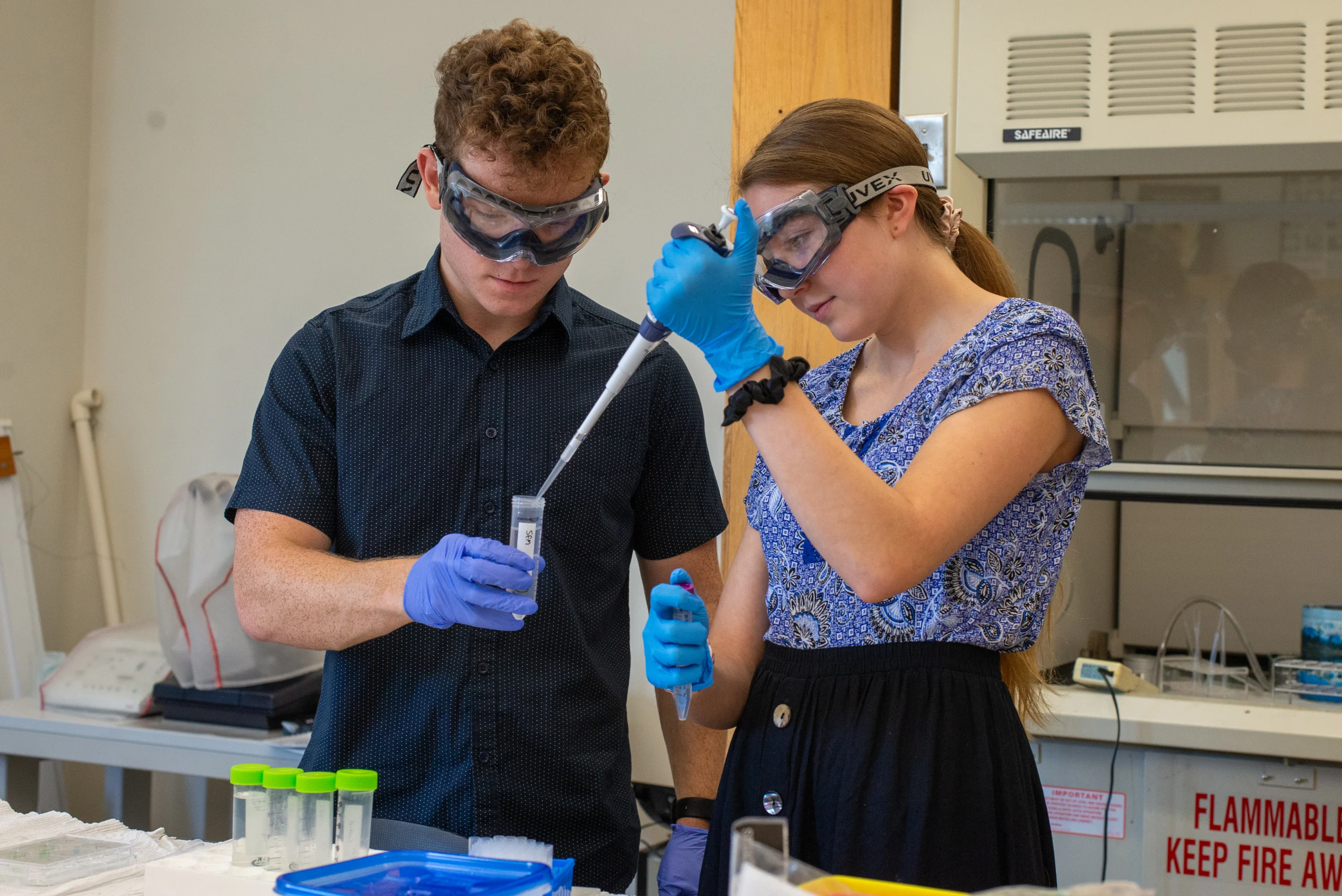
Graduate School Preparatory Program
This mentoring initiative, designed to guide students from underrepresented backgrounds through the application process for master’s, Ph.D. and professional programs, was launched in 2021 by Assistant Professor of English and Africana Studies Emanuela Kucik and Associate Professor of Biology Giancarlo Cuadra (pictured, with graduates of the program in 2022). Each student is paired with one faculty or staff advisor in their desired field of study and one mentor from the underrepresented group with which the student identifies. New this academic year is a syllabus and required attendance to maximize student participation and the benefits they receive from the program.
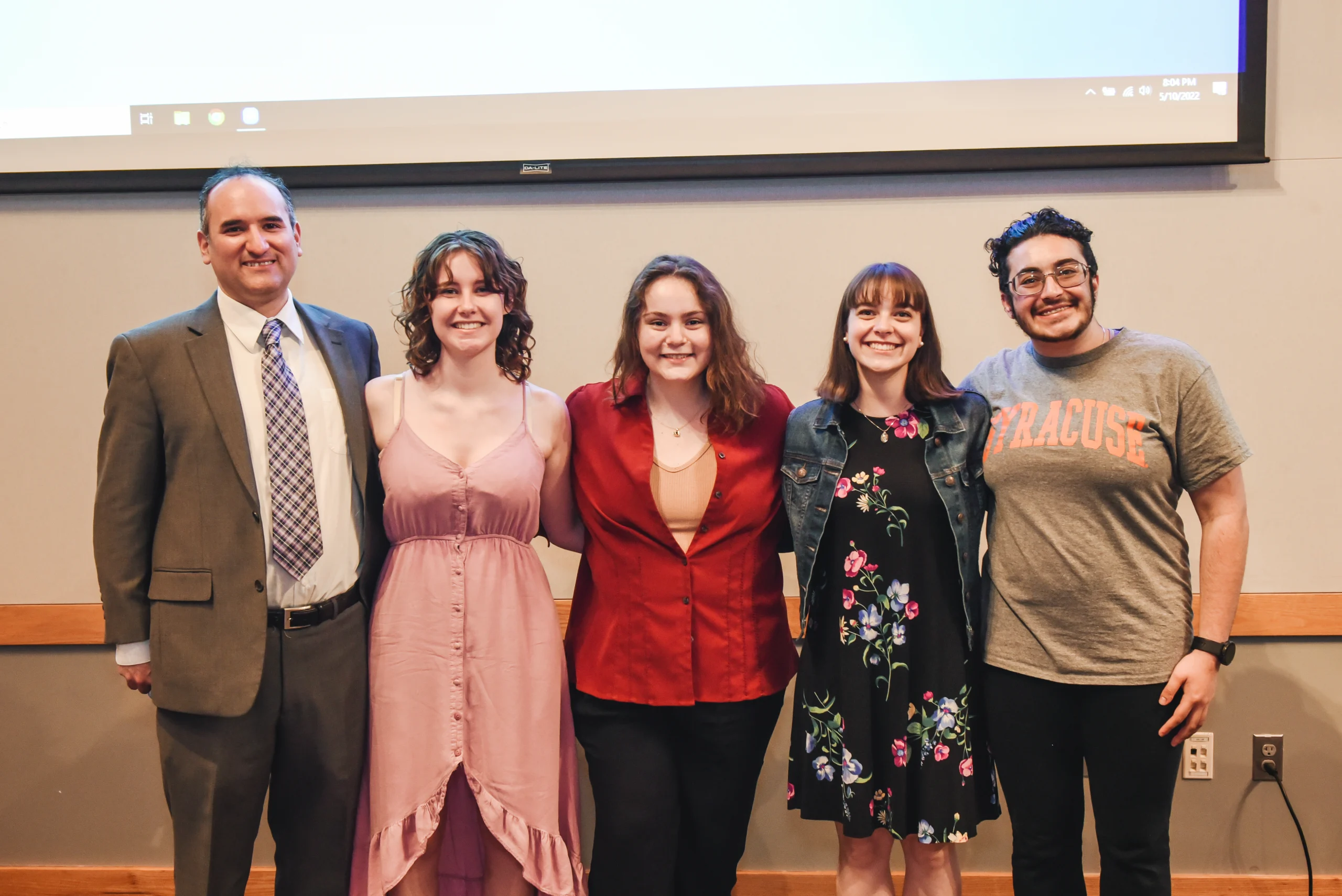
Mock Application Process for Prehealth Students
At many institutions, premedical students complete a mock application primarily to gain letters of recommendation from their school’s evaluative committee. Muhlenberg’s Director of Health Professions Advising Cailín Cordon-Waldman (pictured) designed a curriculum around the mock application to help students assess their readiness and to help those who are ready assemble the strongest possible applications. The curriculum extends the mock application process across an academic year for all prehealth students (including those interested in dental, physician assistant and optometry schools, to name a few) and breaks it down into manageable pieces. It includes fall reflective assignments that ask the students and alumni Cordon-Waldman works with to think through their personal story, their strengths and weaknesses and the core competencies they need to have to be a successful applicant. By the time the mock application is due in February, students have been given the time necessary to craft the strongest possible drafts. The proof is in the numbers: Over the past five years, 92 percent of all graduates who applied to medical and dental school were admitted.
